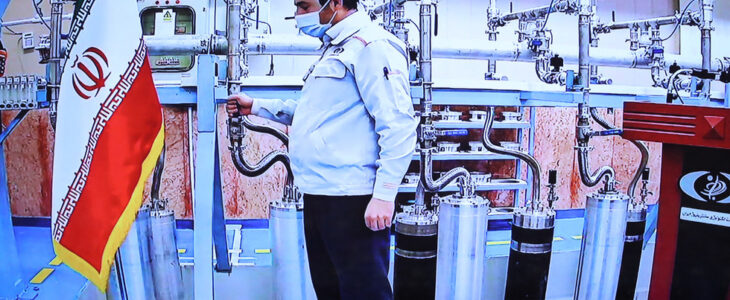
Iran’s Natanz nuclear facility was hit by a “terrorist” attack on Sunday, the country’s nuclear chief said, hours after reports of an electrical “accident” – and a day after new uranium enrichment centrifuges were started up.
Iran reserves the right to “take action” against those behind the incident at the Islamic Republic’s nuclear facility in Natanz, the head of the nation’s Atomic Energy Organization, Ali Akbar Salehi, told state TV on Sunday.

He called the incident at the plant an act of “nuclear terrorism.”
Iran “condemns this heinous act,” Salehi said, calling on the international community and the International Atomic Energy Agency (IAEA) in particular to “deal” with the act of “nuclear terrorism.”

The incident at the plant was earlier described as an “electricity problem” at a power grid in Natanz. “Fortunately, the incident did not cause any human injuries or pollution,” Behrouz Kamalvandi, the spokesman for Iran’s Atomic Energy Organization (AEOI), said earlier on Sunday.
A member of the Iranian parliament’s Energy Commission, Malek Shariati Niasar, also described the incident as “very suspicious,” and said he had assumed it might potentially be “sabotage and infiltration,” since it took place around the National Day of Nuclear Technology.
The event reportedly caused a blackout in the electricity distribution network of the Shahid Mostafa Ahmadi Roshan nuclear facility in Natanz. Further details have not been made public and the causes of the incident are currently “under investigation.”
Natanz is key to Iran’s uranium enrichment program, which Tehran says is strictly peaceful. In early February, it said that hundreds of advanced centrifuges with a higher capacity for uranium enrichment were installed there.
The events also took place just a day after Iranian President Hassan Rouhani announced that Iran has begun using new advanced IR-5 and IR-6 centrifuges to enrich uranium at the Natanz site.
Israeli media reported that the incident was likely caused by a cyberattack, while the Times of Israel has openly claimed, citing “Western intelligence sources,” that Mossad was “behind” the power cut in Natanz. There have been no official statements from Israeli officials so far, however.
Iran’s nuclear program was significantly limited under the 2015 nuclear deal, also known as the Joint Comprehensive Plan of Action (JCPOA). It included caps on uranium purity and the amount Iran is able to produce.
After then-US President Donald Trump unilaterally pulled the US out of the deal, despite the IAEA repeatedly confirming Iran’s compliance, Tehran said that it would no longer be meeting its obligations in full. Washington has since launched a “maximum pressure” campaign of sanctions on Iran.
Earlier this week, Iran’s Atomic Energy Organization said the nation had already produced 55 kilograms of 20%-enriched uranium this year, adding that it exceeded the enrichment capacity achieved before the JCPOA. All of Iran’s nuclear aspirations are “peaceful and civilian,” President Hassan Rouhani said on Saturday.
Recent talks in Vienna on the nuclear deal, which saw Washington and Tehran negotiating indirectly, have not resulted in any major breakthrough.
